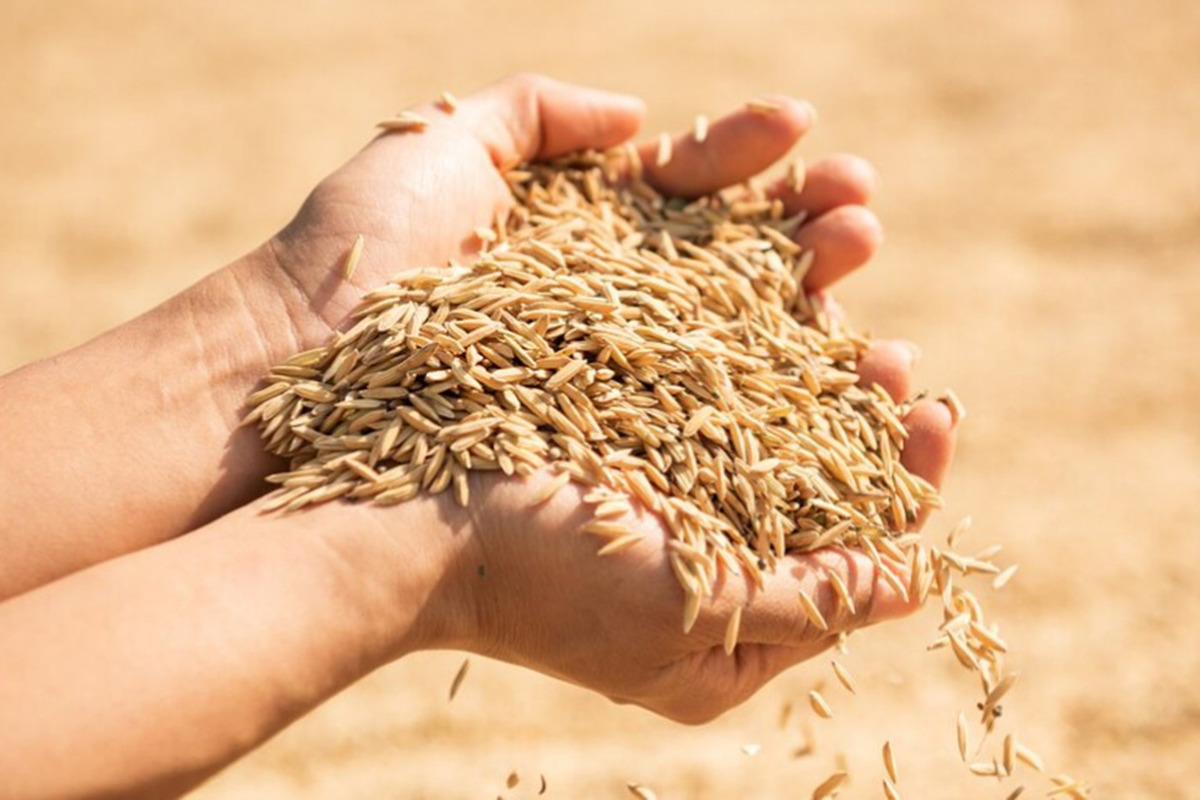Expert Korbut explained where Russian bread, banned in Europe, will go
[ad_1]

The European Union is preparing to erect insurmountable barriers to the import of grain, oilseeds and their processed products from Russia and Belarus. In the coming days, the European Commission may introduce duties on these agricultural products in the amount of 95 euros per ton.
According to the plans of European Union officials, such a high duty will lead to an increase in prices for grain from the Russian Federation by at least 50% and “destroy the demand” for Russian products.
It is noted that the duty could be higher than 95 euros. However, there is nowhere higher: this is the upper ceiling allowed by the World Trade Organization – WTO.
Exports of grains, oilseeds and their products from Russia to the European Union last year amounted to a record 4 million tons. For Europe itself, this is a drop in the ocean – only one percent of total consumption. Therefore, it can play around with its sanctions as it wants. She will get this same percentage anywhere.
True, some experts believe that in fact old Europe buys more Russian wheat. But it does this not directly, like all honest states, but through third countries. Let’s say it buys from Algeria or Bangladesh. On the one hand, it seems to show that she is not at all interested in the Russian food market, and on the other hand, she saves on costs. After all, Moscow sells bread to poor friendly countries at significant discounts.
Well, that’s the thing about Europe.
However, Russia’s loss of 4 million tons of exports is quite significant volumes. Especially considering the fact that in the current conditions we are winning markets around the world with great difficulty. Logistics, thanks to all sorts of prohibitions, became extremely complicated. The entire Black Sea coast of Russia has already been declared a risk zone. And to insure cargo from Russia, you need to pay up to 5% of the cost of the vessel. Otherwise, not a single ship will enter our port..
How might another “attack” on the Russian agro-industrial complex affect the plans of the grain industry? We asked independent agricultural expert Alexander Korbut about this.
“Four million tons is not only wheat, but also all grain products: meal, oilseeds,” he explains. – The European Union, in a state of catatonic excitement, refuses Russian grain. Apparently, there is no longer enough imagination for any other measures. But we supply 1-1.5 million tons of grain to the EU countries, which is not much.
Brussels’ decision is, of course, political. To extinguish the passions of Western farmers who are protesting against cheap grain from Ukraine: it heavily dumps on supplies. However, they cannot limit Kyiv, they will misunderstand – after all, they are partners. They decided to “turn the tables” on Russia.
– But according to international laws, food exports, it seems, cannot be subject to sanctions?
– Yes, when they introduced restrictions, they shouted every time that the sanctions did not affect food products and fertilizers. And now sanctions are not formally introduced, but rather increased duties are imposed.
This is a purely bureaucratic game. If we take into account the small volumes, we can say that these measures will not have a significant negative impact on Russia. As well as positive for Europe. Everyone remains more or less in their own interests. But European officials will be able to report that measures have been taken and European farmers are protected.
– If a duty is introduced, who should pay these 95 euros and to whom?
– In any case, the duty will be transferred to the purchase price. If a ton of wheat costs, say, $200, then another 95 euros will be added to it.
– Will this duty affect our grain market or the global one?
– No, the supply volumes are too small and Russia has too great opportunities to redirect goods to other countries.
– But where, for example? It seems that we have already entered all interested countries with our bread…
– Russian exporters are constantly searching for new markets. By the way, this one million tons of grain, which Brussels de facto refuses, has already been sold to the European Union this year. It’s about the future. And we have time to redirect our flows to other directions. As for the situation on the world market, this duty was not even noticed there. On the Chicago Stock Exchange, the price of wheat for the May contract was $204 per ton. In Europe, the May contract is slightly more expensive – $222.
[ad_2]
Source link






